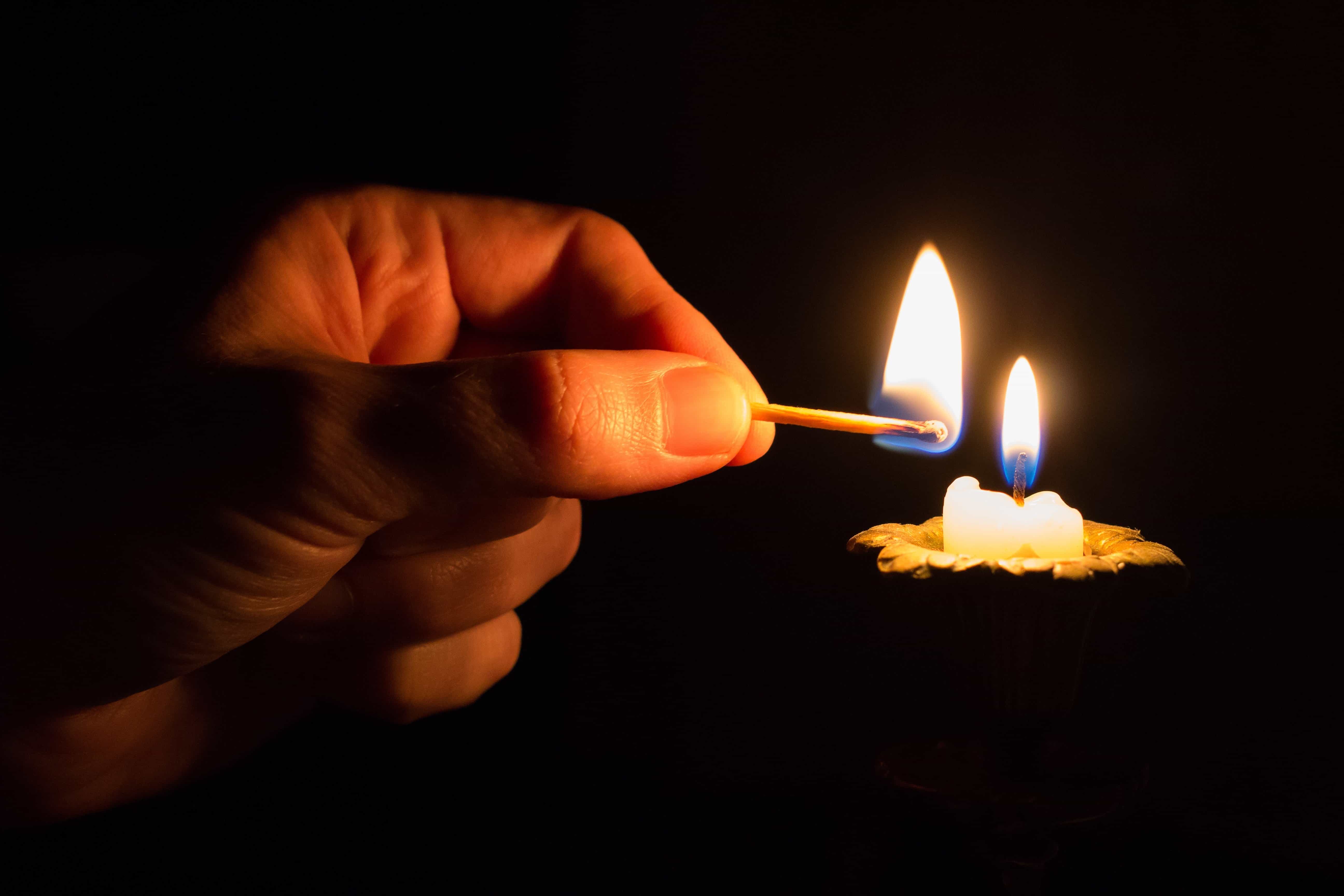When I was growing up, my mom used to make a point about switching our normal weekend Mass attendance during Advent from Sunday mornings to Saturday evenings. She would say that there is something about attending Mass in the dark that helps us feel the season of Advent.
She knew that Advent asked us to feel the night; asked us to sit on starkly cold pew benches, to walk through blistering cold night winds, and go through the rituals of bundling up for the Minnesota winter nights to get to Mass.
Feeling the cold, bundling up with the knowledge of how earthen and vulnerable my vessel is, contemplating the nakedness of trees assaulted by the wind, and spending more time awake in the darkness, are all rituals that have helped me fall into the mystery and terror of Advent.
***
“The kind of awakening that literally shocks a person’s whole being is part and parcel of the Advent idea.” Fr. Alfred Delp wrote this from Tegel Prison in 1944, just months before he would be executed by the Nazis.
“The deepest meaning of Advent cannot be understood by anyone who has not first experienced being terrified unto death about himself and his human prospects and what it reveals within himself about the situation of mankind in general.”
Perhaps only from Tegel Prison do Delp’s words have such power. Where else could one more acutely be terrified unto death about himself and the situation of humankind? Nevertheless, Delp instructs that all of us are to enter in some way to that existential and spiritual place he occupied in the Advent of 1944.
For Delp, shaking ought to be a constitutive component of Advent.
***
Those rituals of bundling up for the Minnesota winter nights to get to Mass helped me understand Delp’s Advent spirituality when I first encountered it. Of course, nothing in my experience has come close to the fright of Tegel Prison. But Advent has helped me encounter the precariousness of our human condition, and it has terrified me.
In Advent, the sight of skinny tree branches in the wind remind me of the millions we’ve left hungry in our greed. The bundling I do to protect my own body leaves me conscious of those who had no protection when a mass shooter came to school. The cold of the evening pew benches and the walks to chapel in the dark force me to ask what it means that some people sleep outside and I do not.
Then I’m moved to ask, with Fr. Delp, what this reveals about myself and the situation of humankind in general. The answers, or the lack of answers, are always painful.
As then-Cardinal Ratzinger preached in 1964, Advent reminds us that “all our answers remain fragmentary. The first thing we have to accept is, ever and again, the reality of an enduring Advent.”
“The only thing left,” said Ratzinger, “is to leave it to God himself to answer and to tell him how we are standing here in our darkness with no answers.”
Advent means realizing that our needs can never be met and our problems can never be solved by something of this world. With this realization, we will yield to our fundamental identity as people in waiting.
But this realization of the limits and dependence of humanity is only part of Advent, Delp says. The terror that comes from waking up once again to the truth of ourselves is what allows us to pass into the most important part of Advent: a recognition of “the golden threads that pass between heaven and earth” where we find “a taste of the abundance the world can have.”
In our terror, we are left chanting “come, disperse the gloomy clouds of night;” we reach out like scrawny leafless trees; we sit in darkness and ask, “Where are you?”
And in those quiet and terrifying moments of contemplation, we will be left open to the still, small voice that chants back to us, “come.”
God, like a deer yearning for streams, longs for us like we do for the warm spring. He sits, wonders, waits and asks, “have you forgotten me?” Whispers: “I still hope in you.”
The hope we find in Advent is that, for God, this is also a season of waiting, of reaching, of pleading. We remember that we have a God whose desire for us is as deep as our need Him.
We learn the glorious news that deep calls to deep.


